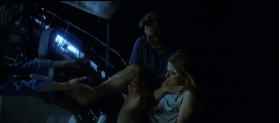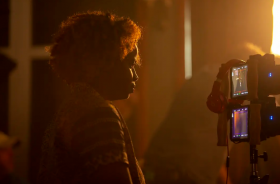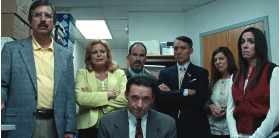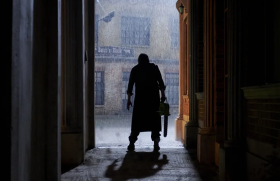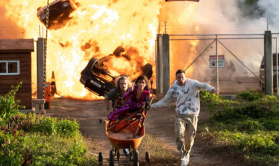
A strong powerful cautionary tale

The Jury Prize at the Cannes Film Festival, beating the "Portrait of a Lady on Fire", which received much acclaim from the audience, represented France to compete for the 2020 Oscar for Best International Video, and successfully made the top five list of "Les Miserables", although, in the end, it did not win against the South Korean "Parasite", which made a big splash in the awards season this year, this not only did not affect the story focused on the process of police patrol on the streets, so that the whole film is in a rather tense state of excitement, but also because the Oscar nomination has gained a lot of attention, making the core theme of the film itself and the director's intention to provoke the audience to think through the story more valuable.
The setting of Les Miserables
%7B_KCV77%25%40D%40ZW08%24L.png?1652809355146)
France has gradually become a melting pot of diverse cultures because of its immigration policy and its core philosophy of freedom, equality, and fraternity. This is perhaps why Les Miserables opens with France winning the 2018 World Cup and mentions Kylian Mbappé, the black player who won the "best young player" of the tournament.
While France's complex demographic composition demonstrates the fundamental values of the country, it is also natural that the conflicts between the different ethnic groups in the country will accumulate over time in a society built by "people". The "93rd Département" refers to the Seine-Saint-Denis département in the northern suburbs of Paris, which, because of its working-class population and a large number of North African and illegal immigrants, has gradually become the most impoverished area in France, with numerous crimes such as theft, drug trafficking and prostitution, which is the stage for the entire film Les Miserables.
Is “Les Miserables” good?
“Les Miserables" is based on the 19th–century French writer Victor Hugo's novel "Les Miserables", which describes the redemption of criminals, the current state of society, the reality of oppression, and covers the June uprising of the Paris Republicans in 1832, and runs through the entire film. The story is like a lit fuse, starting from the original seemingly calm daily patrol, and from the point of view of a bystander who is a newly arrived police officer, step by step, the relationship between the police and the people is revealed through the car window, and because the film is a story about a police officer's relationship with the people, and an accident in which he is involved, with explosive consequences.
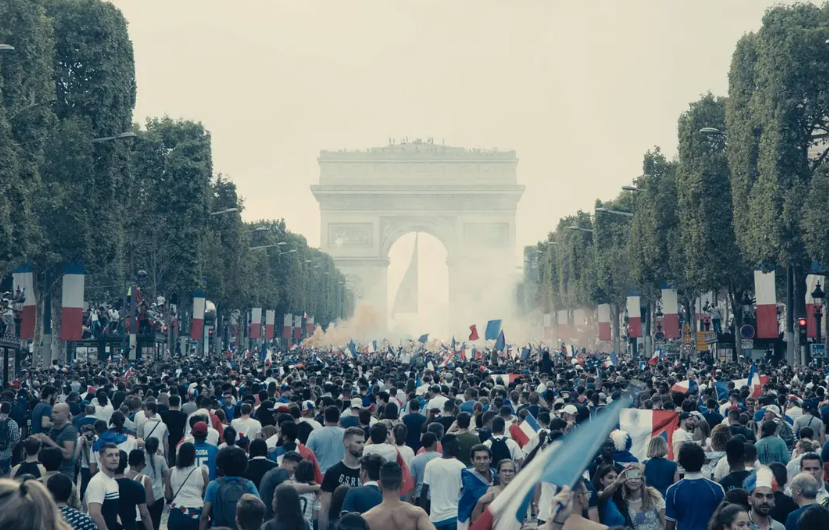
It is hard to imagine that such a mature and complete work would be the debut feature film of director Ladj Ly, with precise scene scheduling, pacing mastery, and clever design of all the elements that appear in the film, whether it is the fiery and impulsive character of the police officers, the neighborhoods where the snakes and dragons live, the exchange of interests of local gangs, or several confrontation scenes between whites, blacks, gypsies and Muslims, all in the rapid flow of the camera to bring out the tense, high-tension, seemingly accidentally. High tension, seemingly accidentally will be a touch of the situation.
Les Miserables presents the situation

Les Miserables is based on the October 2005 incident in the Paris suburb of Montfermeil, where two African-American boys were electrocuted to death while fleeing from the police, triggering a mass protest and riot. Even today, similar incidents to those in the past may continue to recur and are still not properly resolved, making the tricolor flag seem to be the greatest irony in the world. This incident started and eventually extended to the people's extreme distrust of the police, the government, and the state because of many subsequent events, questions to which Hugo gave us the everlasting answer a hundred and fifty years ago: "Remember this, my friends, there are no bad crops or bad people in this world, only bad cultivators." In the end, credits become the finishing touch that allows the entire film to be complete.
The central theme of Les Misérables
Personally, rather than stirring up hatred and antagonism, I prefer to think of Les Miserables as telling a universal truth through the cruelty and darkness of the real world. In the end, the whole film presents social injustice and public but also gives the audience a reminder and warning that they must hold a respectful and tolerant attitude, telling us that we should care more about the dark corners of our own eyes and live peacefully with people of different positions or values.
Les Miserables uses a theft case to take the audience deep into the 93rd district, which many French people are afraid of. The depiction of the law enforcement process and the current situation in people's lives is a clever way to uncover the problems of racial discrimination, social violence, excessive law enforcement, and class divide under the tricolor flag. The film's satirical and critical nature.
Les Miserables Review Conclusion
I think the director chose to stop Les Miserables at the end when it was about to collapse and left an open as if trying to bring out that perhaps in the worst–case scenario, there is still a glimmer of hope that people's conscience can turn the situation so that people can reflect deeply on their behavior while being frightened. This is the most beautiful moment in a country, when the whole country celebrates, regardless of race, color, gender, or religion, and is proud to be French.



